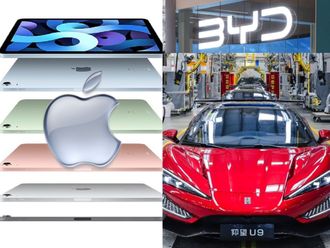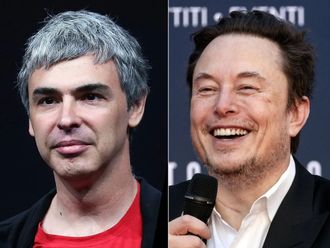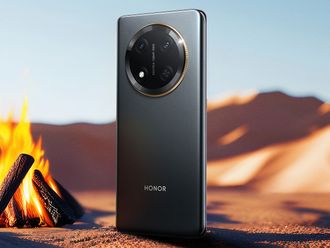
Dubai: Audio and infotainment manufacturer Harman is targeting a revenue of $200 million (Dh734 million) in the Middle East region in its fiscal year 2010/11, Amit Malani, president of Harman Middle East, told Gulf News in an interview yesterday.
The company, which currently has 16 stores for premium audiovisual electronic products in the region, also wants to roll out up to 100 outlets by 2015, Malani said.
The targeted revenue would represent an almost 40 per cent rise from the achieved sales in fiscal year 2009/10, which stood at $150 million. Compared to 2008/09, revenue already jumped 72 per cent after sales dropped 15 per cent in the fiscal year before when the global financial slowdown struck the segment.
Aggressive pricing
"Of course we were affected by the financial crisis at that time, but our reaction was to reduce retail prices which helped us a lot to increase our market share during this difficult period," Malani said. Despite its "aggressive pricing", the company managed to achieve a profitability of 3.5 per cent of revenue in the last fiscal year, he added.
Harman's mid-segment category, which includes products ranging from Dh2,000 to Dh10,000, contributed 60 per cent of the revenues. Its range of iPod and iPhone docking systems emerged as a key product category in the region, Malani said. In the upper price range, audio systems can cost up to half a million dirham.
Harman's Middle East region, headquartered in Jebel Ali, comprises the entire Middle East, all of Africa except South Africa, South Asia except India and the Commonwealth of Independent States (CIS), excluding Russia.
For the planned new stores, Malani is mainly eyeing Egypt, Morocco, Lebanon and Sri Lanka, and he also sees "tremendous growth" in the CIS region, while Africa at the moment has no priority except for some emerging countries like Nigeria or Kenya.
Overall, the investment for the roll out until 2015 is budgeted at Dh500 million. Costs to build up one new large store can amount to some $5 million (Dh18.36 million), he said, such as the flagship store in Dubai Mall.
Gulf stores
In the UAE, Harman currently runs 10 stores, two in Saudi Arabia and one each in Bahrain, Qatar, Pakistan and Mauritius. Five of them have been opened in the last fiscal year.
More stores will come to Saudi Arabia, one will be opened in Oman soon. Within the UAE, he says the company is in a "wait and watch" position: "Rents in the malls have come down, which is positive for us, but there are already too many malls, and we better wait for the right retail mix in the newly opened ones before we decide to launch more stores."
Malani mentioned that Harman currently holds a market share in the premium audiovisual segment of 60 per cent.
Apart from retail, Harman is active in the hotel and hospitality segment together with Samsung, in car audio and in audio equipment for movie theatres.
At present, Harman Middle East has three key business lines, which are ‘retail', ‘distribution' and ‘projects'. As the retail arm of the company, harman house is home to a line-up of audiovisual brands, including Harman Kardon, JBL, Infinity, Samsung, AKG, Becker and Mafco.
Harman brands are known to power over 70 per cent of the world's recording studios, more than 75 per cent of cinemas worldwide built in the last 20 years, and are incorporated in premium cars such as BMW, Land Rover, Rolls Royce, Mercedes Benz, Lexus and Mini Cooper.
Harman timeline
Sidney Harman and Bernard Kardon founded the predecessor to Harman International, Harman Kardon, in 1953. Both were engineers by training and worked at the Bogen Company, which was then the top manufacturer of public address systems. Their collaboration helped to create a new industry, described as "high-fidelity audio." Harman bought out his partner in 1956 and expanded Harman Kardon into an audio powerhouse. The company grew with several acquisitions over the years and was transformed into Harman International Industries in 1980 and was listed at the New York Stock Exchange. Harman International's makes loudspeakers, CD and DVD players, CD recorders, and amplifiers under several brands.
Do you purchase high end products? Have you purchased any this year? If not, will you? Do you consider them a good investment?









